

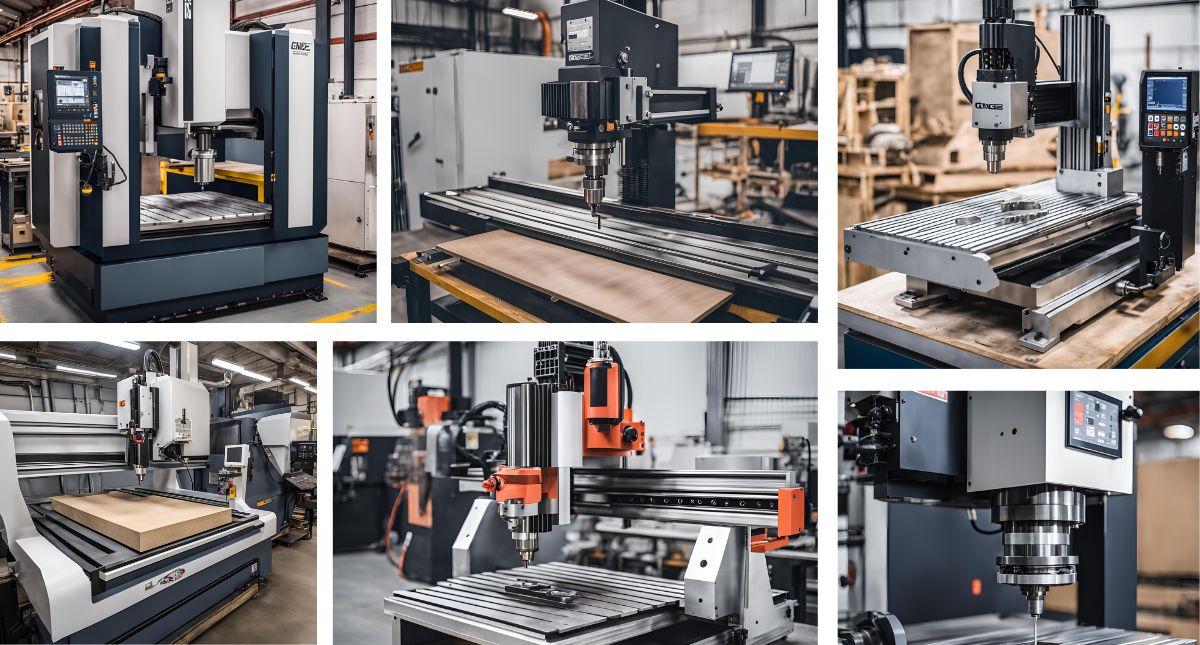
Interested in taking your precision projects to the next level? A CNC mill could be your answer. In this guide, we’ll explore what a CNC mill is, the different types available, and how to select the best one for your needs. You’ll also find our top picks for CNC mills that can enhance your manufacturing efficiency and accuracy.
Selecting the right CNC milling machine involves considering factors like size, precision, versatility, and additional features tailored to your specific project needs.
There are various types of CNC mills including vertical, horizontal, and 5-axis machines, each offering unique advantages in terms of precision, efficiency, and capability to handle complex geometries.
Regular maintenance, including routine inspections, lubrication, and software updates, is crucial for ensuring the longevity and optimal performance of CNC milling machines.
Prepare to immerse yourself in the intriguing realm of CNC milling machines. We’ll cover everything from the basics to advanced features, helping you understand what makes these machines tick. We’ll explore the types of CNC mills available, their unique features, and how to choose the right one for your projects.
And of course, we’ll provide a curated list of the top CNC milling machines that can significantly boost your precision projects. So, let’s get started and explore the whole picture of CNC milling!
Selecting the right CNC milling machine for your specific needs is crucial for achieving optimal performance and efficiency. There are several key factors to consider, including:
Size and work capacity
Precision
Versatility
Extra features
The size and work capacity of a CNC mill determine the maximum dimensions of the materials that can be processed and the type of projects it can handle. For instance, if you’re working on large-scale projects, you’ll need a machine with a larger work envelope. On the other hand, precision is critical for applications that demand tight tolerances, ensuring that your parts are of the highest quality.
Versatility is another important consideration. A versatile CNC milling machine can handle various types of materials and perform multiple functions, making it a valuable addition to any workshop. Extra features like dust collection systems, automatic tool changers, and fixing systems can further enhance the machine’s utility and efficiency.
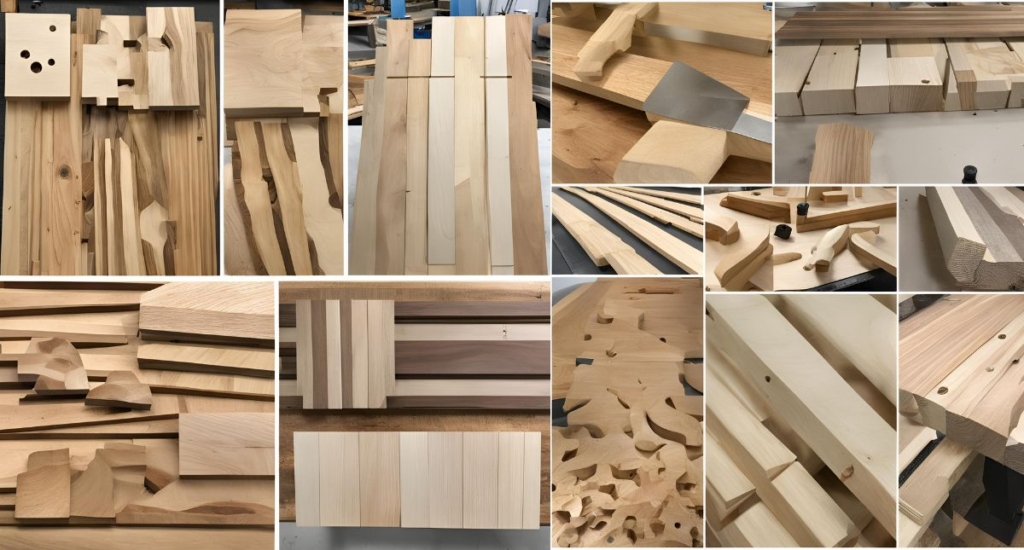
A thorough evaluation of your needs in light of these factors will guide you towards a CNC mill that complements your projects and elevates the quality of your results.
Now that you understand the key factors to consider when choosing a CNC mill, let’s take a closer look at the different types of CNC milling machines available in the market. Each type offers a unique combination of size, precision, versatility, and extra features, catering to various needs and applications.
A detailed exploration of these options will equip you with the knowledge to make an informed decision and choose the CNC mill that best suits your projects.
CNC milling has revolutionized precision manufacturing by using computer-controlled cutting tools to remove material from a workpiece, creating intricate shapes. The process of CNC milling involves the following steps:
Creating a detailed CAD model
Converting the CAD model into G-Code for the CNC machine
Preparing the CNC milling machine by securing the workpiece
Attaching the cutting tool to the machine
Setting up cooling systems to prevent overheating during the milling process.
By following these steps, manufacturers can achieve high levels of precision and efficiency in their milling operations.
This technology is essential for industries such as aerospace, automotive, electronics, and medical devices, enabling the production of high-quality, complex parts with ease.
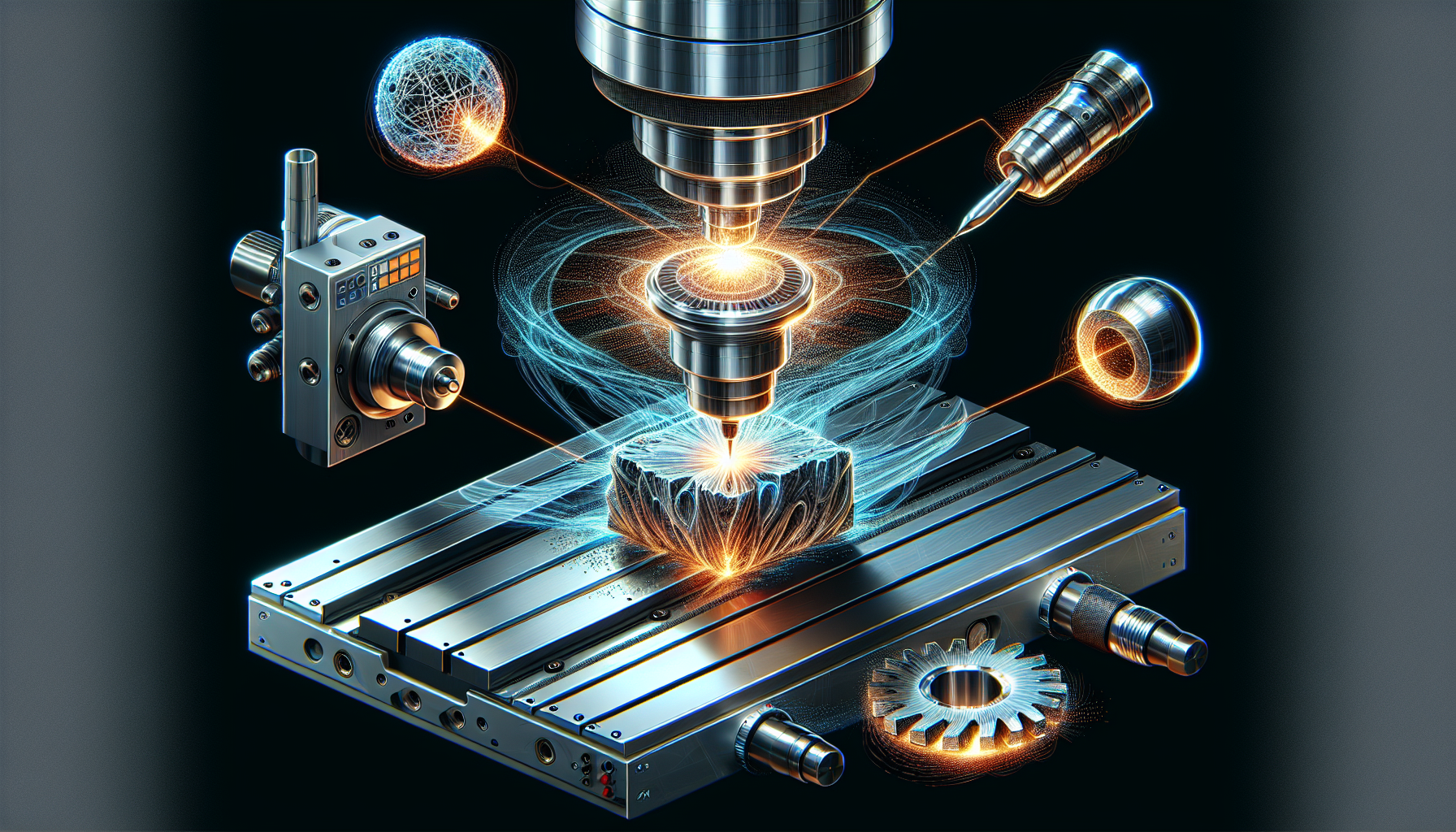
A CNC milling machine consists of several key components that work together to achieve precise machining. These include:
These components work together to ensure accurate and efficient milling operations.
CNC milling machines come in various types, each offering unique capabilities and features. Some common types include:
Vertical CNC mills: These have a vertically oriented spindle, making them versatile for various applications. They are particularly useful for plunge cuts and drilling.
Horizontal CNC mills: These feature a horizontally oriented spindle, ideal for machining large or heavy parts due to their ability to handle sizeable surface areas efficiently.
Turret mills: These have a spindle axis that remains stationary, while the table moves parallel and perpendicular to the spindle axis.
Bed mills: These move the table following the vertical axis of the spindle, making them easier to operate.
For more advanced machining needs, 5-axis CNC mills are available. These machines can produce complex three-dimensional parts with high precision and speed. The inclusion of two additional rotary axes allows tools to approach workpieces from multiple angles in a single setup, reducing the need for multiple machine tools and setups. This flexibility makes 5-axis CNC mills ideal for projects requiring intricate designs and complex geometries.
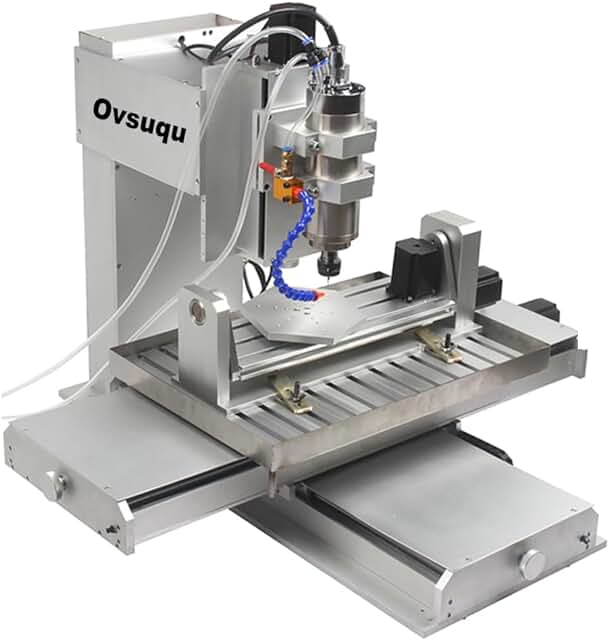
4.8 out of 5 stars
The Ovsuqu CNC 6040 5 axis CNC Router Engraving Machine is a high precision and versatile machine designed for engraving and cutting a variety of materials such as wood, plastic, and metal. With a powerful 2200W spindle and water cooling system, this machine ensures smooth and efficient operation. The 5 axis capability allows for intricate and complex designs to be created with ease. Whether you are a hobbyist or a professional, the Ovsuqu CNC 6040 is the perfect tool for all your engraving needs. just for: $3159.08
CNC milling offers numerous advantages, making it a preferred choice for many industries. Some of the top benefits include:
High precision and repeatability, allowing for the production of complex shapes with tight tolerances
Scalability, making it adaptable for different production volumes
Ideal for rapid prototyping and low-volume production
The many benefits of CNC milling make it a versatile and efficient manufacturing process.
These advantages make CNC milling an essential technology for achieving high-quality results in various applications.
Vertical CNC milling machines are known for their versatility and efficiency. They achieve high levels of precision and accuracy in cutting, drilling, and shaping metal, making them particularly useful for plunge cuts and drilling.
The travels of a typical Mini CNC Vertical Mill are 16” x 14” x 15”, offering a compact yet capable solution for various machining tasks. We’ll examine more closely the primary features and uses of vertical CNC mills.
Vertical CNC mills have several key features that make them stand out. Their spindles are oriented in an upright position, holding blade cutters that rotate on the spindle axis. The quill can be lowered and raised, allowing for a variety of cut angles.
Vertical mills have the following advantages:
Multi-dimensional work planes to move both the workpiece and the mills, enhancing task efficiency
Simpler setup and programming process, making them ideal for small parts and short runs
Smaller size requires less space in the machine shop, making them a practical choice for many workshops.
Vertical CNC machining is used for a wide range of tasks, including:
drilling
profile contouring
planning
keyway cutting
slotting
These mills are excellent for producing high-quality precision parts for industries such as aerospace, electronics, medical, and automotive. They are particularly suitable for prototype applications due to their ease of setup and operation.
Vertical CNC mills are also used to create box-type parts such as engine blocks and gearboxes. Their ability to make complex curved parts like cams and propellers further highlights their versatility. Whether you’re working with soft metals, hard materials, or plastics, vertical CNC mills can handle a variety of materials and deliver precise results.
When it comes to vertical CNC mills, there are several popular models to consider. CNC Vertical Machining Centers are the most common and easy-to-program mills, best for short runs and small sizes.
The SYIL X5 CNC machine is known for its precision and reliability, making it a top choice for both beginners and experienced users.
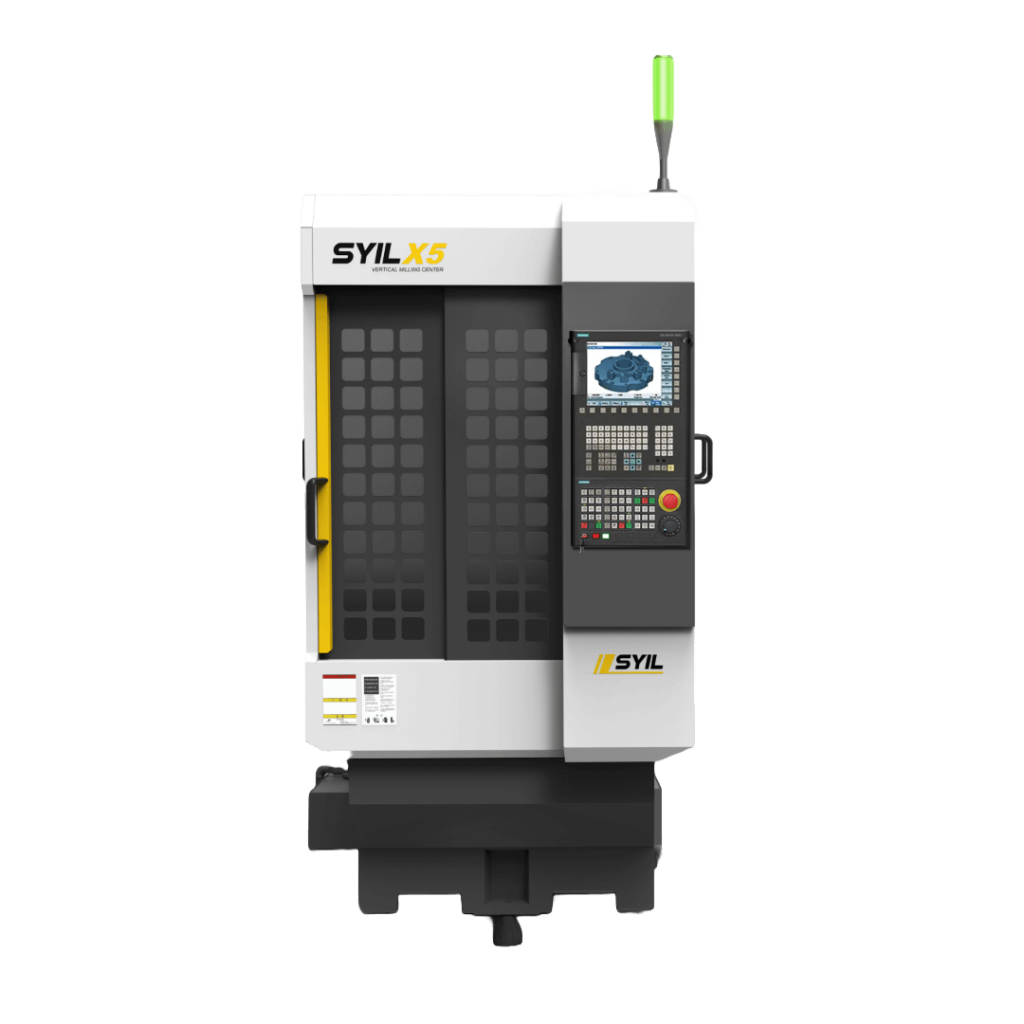
Another excellent option is the SYIL X7 small CNC machine, which offers a compact design and a feature set that empowers users to achieve precise results consistently. This machine is compatible with Vectric VCarve Desktop, providing even more versatility for your projects.
Horizontal CNC milling machines are renowned for their power and precision. They are particularly effective for machining large or heavy parts due to their ability to handle sizeable surface areas efficiently. The horizontal layout of these mills allows for better management and removal of chips, enhancing the milling process efficiency.
We’ll take an in-depth look at the distinguishing features and uses of horizontal CNC mills.
Horizontal CNC mills have several key features that contribute to their effectiveness:
New castings in these mills have been redesigned to achieve increased rigidity and stability.
They cut on the sides of parts, allowing chips to fall away and reducing issues related to chip buildup.
Horizontal CNC mills can spin the part, enabling milling on all sides without repositioning, which enhances precision and speed.
These machines allow for tool changes and part setups while milling operations continue, reducing downtime significantly.
Horizontal CNC mills often perform lighter cutting passes, resulting in finer surface finishes and extended tool life. Their faster processing speeds, up to three to four times faster than vertical CNC milling machines, make them ideal for high-volume production. These features provide longer tooling lives and better surface finishes compared to their vertical counterparts, making them a preferred choice for many applications.
Horizontal CNC mills are particularly effective for mid-volume production due to their speed and precision. They excel in:
Face and contour grinding
Boring and reaming
Template drilling
Projects requiring slots, grooves, pocketing, or facing
Their ability to handle complex aerospace and aircraft components that require machining on multiple sides makes them ideal for the aerospace industry.
These machines are perfect for producing parts with significant surface areas, such as large panels or structural components. Their versatility and efficiency make them a valuable asset in any workshop, capable of handling a wide range of machining tasks with ease.
Several popular models of horizontal CNC mills are widely recognized in the industry for their power and precision. Some of these models include:

HAAS EC-1600 features a large work envelope and powerful spindle, making it suitable for heavy-duty applications.
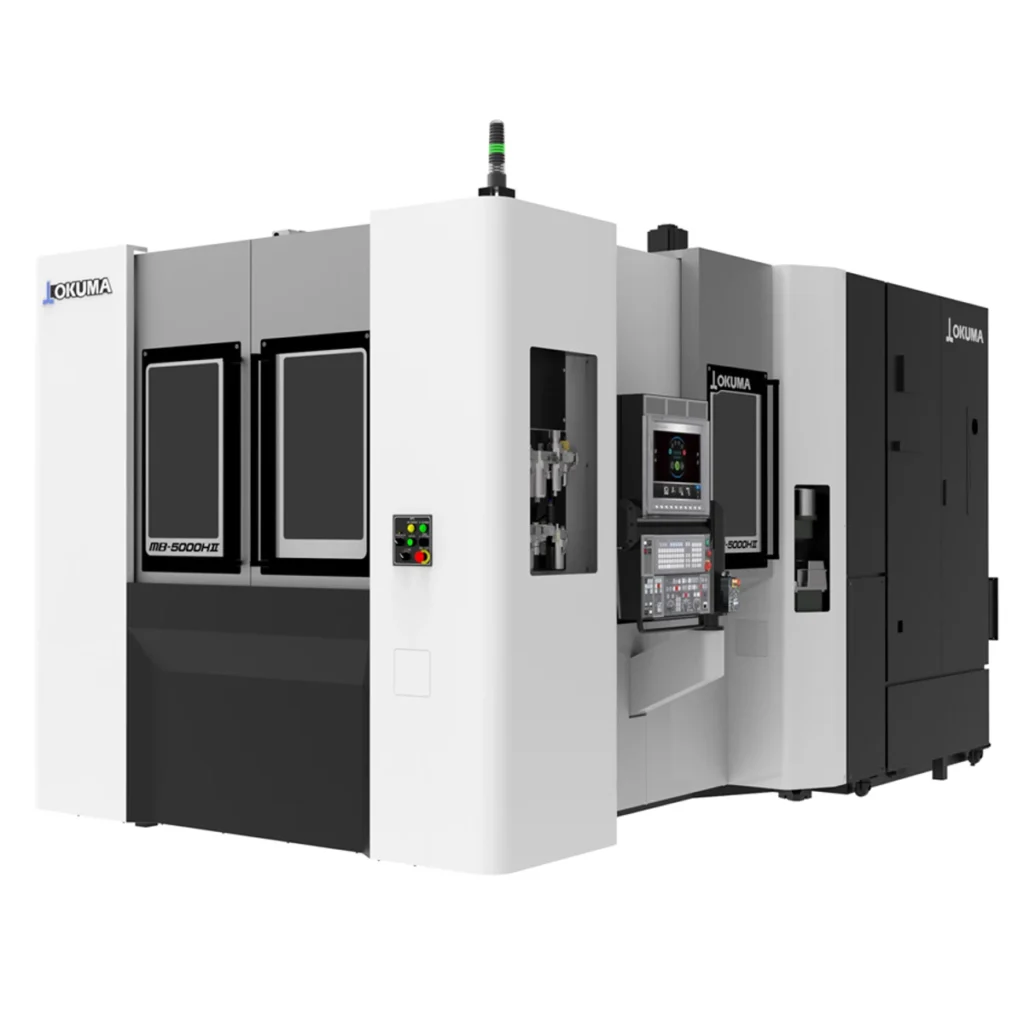
Okuma MB-5000H. Well Known for its speed and reliability.
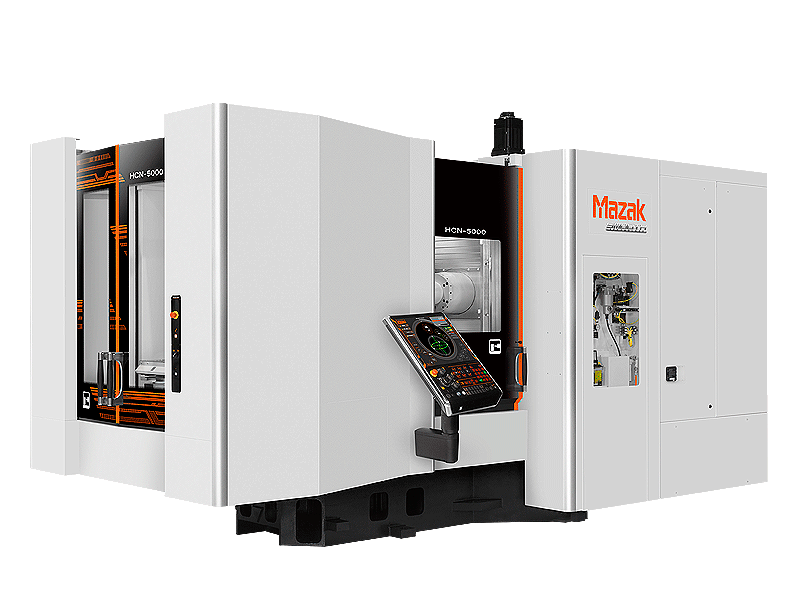
Mazak HCN-5000: Offers advanced thermal stability.
These mills are highly regarded for their performance and are commonly used in various industries.
These models are excellent choices for those looking to invest in a high-performance horizontal CNC mill.
5-axis CNC milling machines bring unparalleled flexibility and precision to the machining world. These machines can produce complex three-dimensional parts with high precision and speed, thanks to the inclusion of two additional rotary axes. This allows tools to approach workpieces from multiple angles in a single setup, reducing the need for multiple machine tools and setups.
We’ll examine the advantages of 5-axis CNC milling, particularly its capacity for producing intricate geometries and its cost efficiency.
5-axis CNC machining, including the z axis, is crucial for projects requiring intricate designs, as it allows greater flexibility in tool positioning. Vertical machining centers can be manipulated on up to five axes for fabricating custom shapes, slots, holes, and details. By tilting and rotating tools away from conventional angles, 5-axis machines enhance precision and access to intricate part geometries. This capability eliminates the need for multiple machine tools to create complex parts, streamlining the manufacturing process and reducing handling errors.
Projects such as turbine blades, crankshafts, and orthopedic implants benefit greatly from the complex geometries achievable with 5-axis CNC milling. The ability to work on multiple surfaces simultaneously significantly reduces setup time and ensures that parts are machined with the highest accuracy. This method also minimizes the need for multiple setups, saving time and reducing potential errors.
5-axis CNC machining offers significant cost-effectiveness by reducing labor costs and minimizing the need for multiple setups. The method’s efficiency allows businesses to achieve faster turnaround times without compromising precision. Completing components in a single setup reduces production time and potential handling errors, making 5-axis CNC milling a smart investment for achieving high-quality, affordable parts.
Prior to choosing a CNC milling machine, it’s vital to identify your unique needs. The versatility of CNC milling allows it to work with various materials and part geometries. The types of materials being machined influence the machine selection—hard superalloys require advanced machines, while softer materials like aluminum may need less expensive options. Evaluate the dimensions of your typical projects and ensure the machine’s travel on each axis (X, Y, and Z) can comfortably accommodate your designs.
The level of detail and tolerance required in your projects should guide the precision specifications of the CNC mill you choose. The type of CNC machine required depends heavily on the nature of the work, with simple parts often needing just a 3-axis machine, while more complex parts may benefit from a 5-axis machine. Cost considerations are also crucial, as CNC machines can be more expensive than manual machines, and the cost can vary based on tooling, cooling systems, and other add-ons.
Whether you build your own CNC machine or opt for a pre-built one, ensure it meets your specific needs and budget.
When evaluating different CNC mill models, it’s important to take into account their distinctive features and capabilities. For example, the OpenBuilds MiniMill CNC Machine is praised for its easy assembly, well-thought-out design, and robust sturdiness. Pre-built CNC machines, like those from SYIL, allow you to skip the assembly process and start creating projects with precision and efficiency immediately.
By evaluating these differences, you can find a model that best suits your needs and capabilities.
Deciding between buying a new or used CNC milling machine depends on your budget and specific needs. While new machines offer the latest features and technology, they can be expensive. On the other hand, used machines can be a cost-effective solution if you’re mindful of desired features and perform thorough inspections before purchasing.
Starting small and gradually upgrading can be a practical approach, ensuring that you don’t end up with a problematic machine.
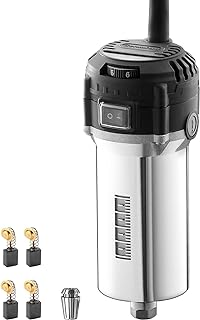
5.0 out of 5 stars
The Genmitsu 710W Compact Router is a versatile and powerful tool perfect for woodworking and DIY projects. With a 65mm diameter and 6 variable speeds, this palm trimmer can handle a wide range of cutting tasks with precision and ease. Its compact size and ergonomic design make it comfortable to use for extended periods of time. Whether you're a professional woodworker or a hobbyist, the Genmitsu Compact Router is sure to be a valuable addition to your workshop. just for: $99.99
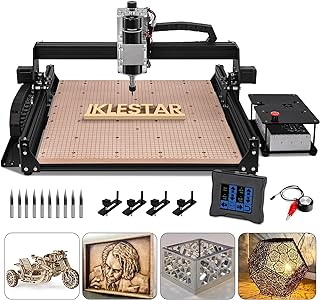
5.0 out of 5 stars
Introducing the 500W Spindle CNC Machine for Metal, a powerful and versatile 3 Axis Desktop CNC Router designed for metalworking projects. This machine features a high-speed 500W spindle motor, capable of handling a wide range of materials with precision and accuracy. The 3 Axis design allows for intricate and complex designs to be created with ease. Additionally, the machine comes equipped with offline control capabilities, allowing for convenient and efficient operation. Whether you're a hobbyist or a professional metalworker, this CNC machine is the perfect tool for bringing your projects to life. just for: $559.99
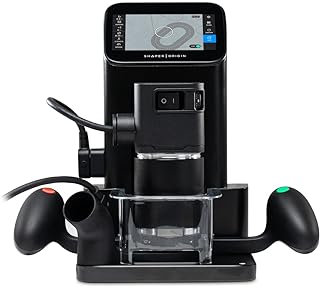
5.0 out of 5 stars
The Origin Handheld CNC Router is a revolutionary tool that brings CNC level precision cutting to a portable handheld device. This innovative router allows you to easily create intricate designs and precise cuts on a variety of materials, from wood to plastic to metal. With its compact size and easy-to-use interface, the Origin Handheld CNC Router is perfect for DIY enthusiasts, artists, and professionals alike. Whether you're working on a small project at home or need to make precise cuts on the go, this handheld router is the perfect tool for all your cutting needs. just for: $2,899.00
If you’re still uncertain about which CNC milling machine to select, it might be helpful to investigate key features that could greatly influence your decision. Features like spindle speed and torque, control software, and automatic tool changers play crucial roles in optimizing CNC milling operations.
By understanding these features, you can make an informed choice that aligns with your machining needs and goals.
Spindle speed and torque are critical factors in CNC milling operations. For example, the Mini Mill has:
Spindle speed of 8000 rpm, which is crucial for reducing cutting forces and heat generation
Higher spindle speeds improve the surface finish on the workpiece
Torque ensures that the cutting tool can overcome the resistance of the material, making machining effective.
These factors directly influence cycle times, feed rates, and overall efficiency in your projects, particularly when considering the y axis.
Control software is essential for managing and optimizing CNC milling processes. Advanced control software can optimize feed rates and tool paths for efficiency, ensuring accurate modeling and simulation of CNC milling operations. Different control systems like Fanuc, Haas, and Heidenhain offer various features, impacting usability and functionality.
Real-time adjustment and feedback provided by advanced control software ensure optimal machining conditions are maintained throughout the process, enhancing precision and efficiency.
Automatic tool changers can significantly enhance productivity by allowing continuous machining without operator intervention. They minimize downtime by quickly switching tools during operations, enhancing efficiency and reducing human error. By working in tandem with the base machine, these tool changers optimize the overall performance of the system.
Tool changers also increase the versatility of CNC mills by enabling the use of multiple tools in a single setup, making them an invaluable feature for complex machining tasks.
Accessories such as coolant systems, probing, tool setting, and rotary tables can significantly improve CNC milling performance. These enhancements not only increase precision and efficiency but also open up new machining possibilities, enabling the production of complex and intricate components.
We’ll examine how these accessories can enhance your CNC milling process.
Coolant systems play a crucial role in CNC milling by reducing heat and preventing tool wear, thus extending tool life and improving precision. High-pressure coolant systems maintain proper operating temperatures to prevent overheating and ensure efficient chip removal, minimizing chip clogging and maintaining a clean work area.
Different types of coolants, such as soluble, synthetic, semi-synthetic, and straight oils, offer varying levels of cooling and lubricating properties, suitable for different machining needs.
Probing and tool setting systems are essential for ensuring accuracy and efficiency in CNC milling operations. Probing systems reduce setup times and ensure precision in measuring workpiece dimensions or cutting tool positions. Tool presetters enable fast, accurate, and repeatable tool measurements, reducing setup processes and increasing throughput.
These systems automate measurements and tool adjustments, enhancing overall machining precision and efficiency.
Rotary tables transform traditional CNC mills into more versatile, multi-axis machines, allowing for the positioning of a workpiece at various angles and enabling more complex machining operations. Integrating rotary tables seamlessly with Haas machines, for example, ensures easy, plug-and-play connectivity, enhancing capabilities and facilitating advanced machining processes.
Adding optional 4th- and 5th-axis drives greatly enhances a mill’s capabilities by enabling more advanced and precise machining tasks.
Proper maintenance habits are crucial for extending the lifespan of CNC milling machines and ensuring optimal performance. Regular maintenance ensures:
Accurate tool positioning
Precise movements
Overall system reliability
Preventing unexpected downtime
Maintaining efficiency
We’ll discuss some fundamental maintenance practices that can maintain your CNC mills’ optimal condition.
Regular inspections are vital for identifying and addressing potential issues in CNC mills before they escalate. Real-time monitoring through advanced spindle sensor systems can optimize machining processes, including rigid tapping, and prevent costly errors.
Regularly cleaning linear guide systems and bearings using compressed air, brushes, or vacuum systems prevents contamination and ensures smooth motion. These inspections help maintain the machine’s accuracy and reliability.
Lubrication and cleaning are essential for maintaining CNC mills. Cleaning the machines daily, especially removing chips and sitting coolant, helps avoid rust and ensures proper coolant return. Regularly inspecting linear bearings for signs of chips, coolant, dust, or debris prevents accelerated wear and extends bearing life.
Developing a routine for cleaning and lubricating CNC mills, such as pulling the manual oiler supply lever every four hours, can prevent rust and wear, ensuring smooth operation.
Regularly updating the control software is crucial for optimal performance of CNC mills. Software updates improve performance and enhance operational efficiency by introducing new features and addressing potential bugs.
Outdated software may lead to suboptimal performance and compatibility issues with newer machine functionalities, making it essential to keep the control software up to date.
Maintenance comes with its costs, and these should be factored into your overall evaluation. Look for machines that are known for being maintenance-friendly, from brands with local representatives and strong reputations. This will give you a clearer understanding of the machine’s durability and the ease of maintaining it.
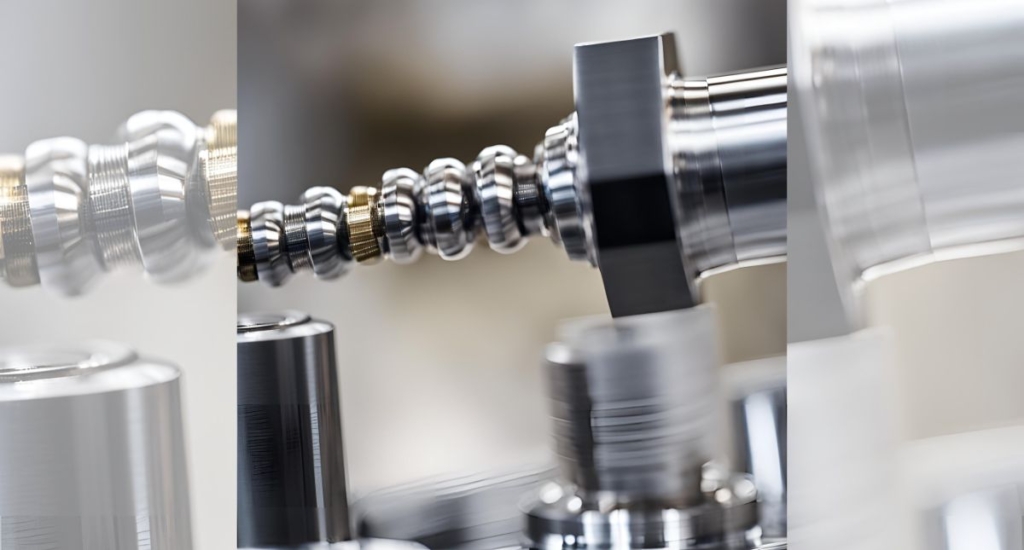
Additionally, consider the availability of spare parts and the ease of obtaining them. Machines with readily available parts can minimize downtime and ensure that any necessary repairs can be completed swiftly. It’s also beneficial to check if the manufacturer offers comprehensive support services, including training for operators and maintenance personnel. This can significantly reduce the learning curve and help maintain the machine in optimal condition.
Moreover, evaluating the total cost of ownership over the machine’s lifespan, including energy consumption, maintenance, and potential upgrades, can provide a more accurate picture of the long-term investment. Machines that are energy-efficient and have lower operational costs can offer substantial savings over time.
Finally, user reviews and case studies can provide valuable insights into the real-world performance and maintenance requirements of the machine. Engaging with a community of users or seeking advice from industry experts can help you make a more informed decision and choose a CNC mill that meets your specific needs and expectations.
In summary, CNC milling machines are powerful tools that can significantly boost your precision projects. By understanding the different types of CNC mills, their key features, and how to choose the right one for your needs, you can enhance your machining capabilities and achieve high-quality results. Regular maintenance and the use of essential accessories further improve the performance and longevity of your CNC mills. With these insights, you’re well-equipped to make informed decisions and take your projects to the next level.
When choosing a CNC mill, it’s important to consider factors such as size and work capacity, precision, versatility, and extra features like dust collection systems and automatic tool changers. These aspects play a crucial role in the machine’s performance and capabilities.
There are various types of CNC mills available in the market, including vertical mills, horizontal mills, 3-axis CNC mills, and 5-axis CNC mills, each with distinct capabilities.
Using CNC milling machines offers benefits such as high precision, repeatability, scalability, and adaptability for various production volumes and applications. These machines can greatly enhance production processes.
Vertical CNC mills have key features like vertically oriented spindles, quill movement, multi-dimensional work planes, and a simpler setup process, making them ideal for specific machining requirements.
5-axis CNC milling improves precision and efficiency by enabling the creation of complex geometries with high precision through multiple tool angles, reducing the need for multiple setups.
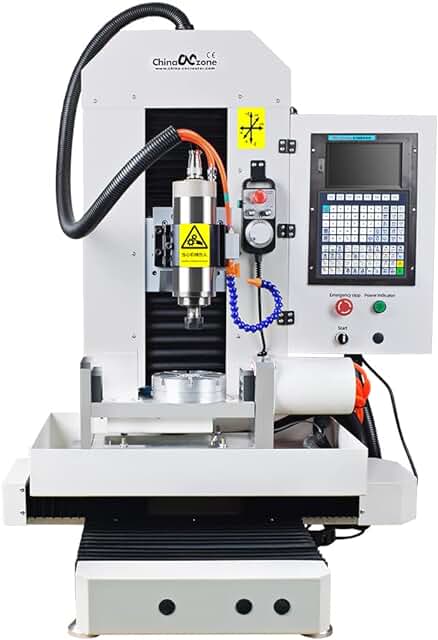
4.8 out of 5 stars
The Steel CNC Router 5 axis 2.2KW is a high-quality engraving mill designed for precision cutting and engraving on steel and other metals. With a sturdy metal structure and a powerful 2.2KW spindle, this CNC router is capable of handling a wide range of projects with ease. The machine features a DSP control system for easy operation and precise results. Whether you're a professional metalworker or a hobbyist looking to take your projects to the next level, the Steel CNC Router 5 axis 2.2KW is the perfect tool for the job. just for: $8399.00

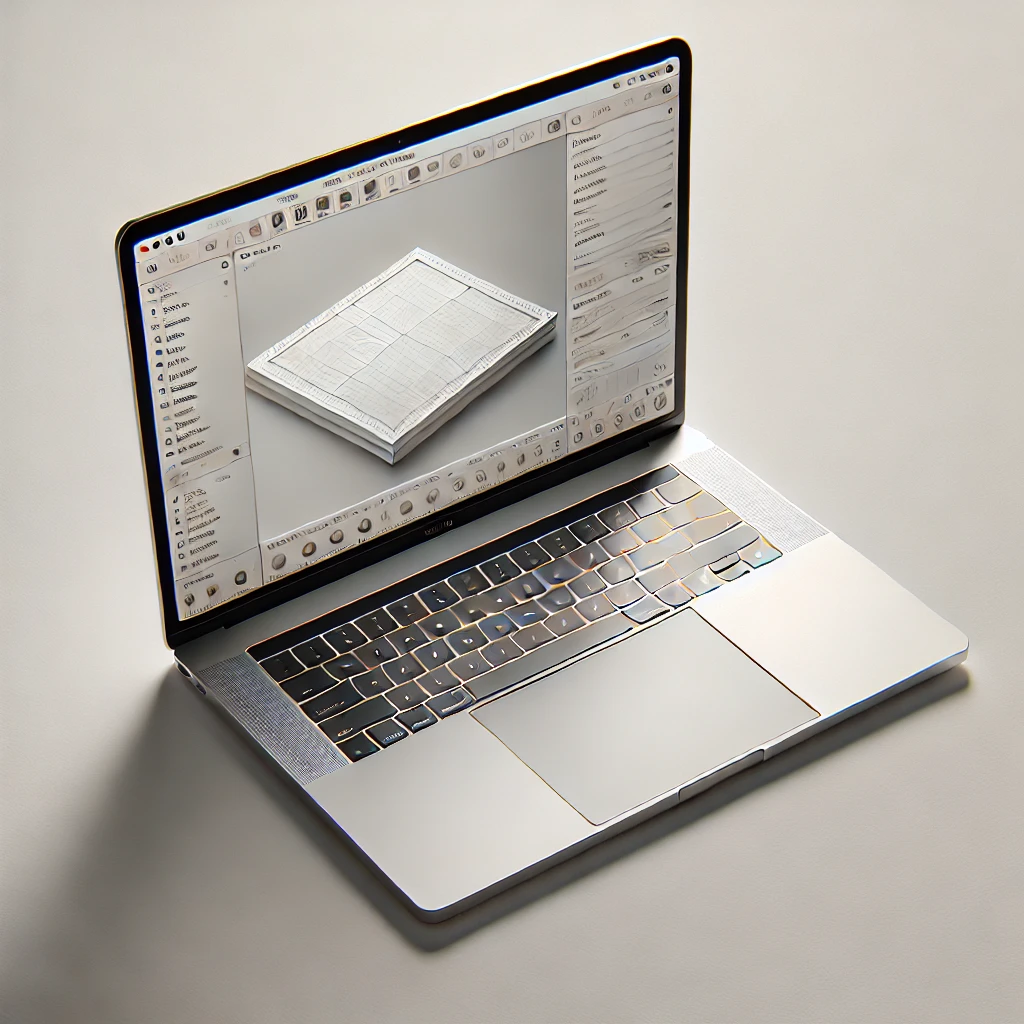
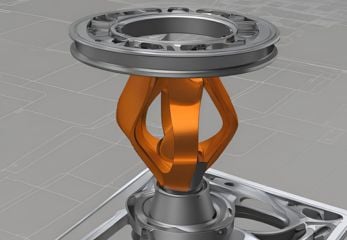
Discover the World of CNC with Us! We're here to make your journey into CNC and making as smooth as possible. Whether you're a seasoned pro or just starting out, our goal is to provide you with fast navigation and clear guidance to help you find exactly what you're looking for. If you're new to the terminology, don't worry – we've got you covered! Check out our handpicked selection of products on Amazon, where you can find the perfect fit for your needs. And remember, when you make a purchase through our Amazon affiliate links, Agilemaking may receive commissions as compensation.
Happy exploring!
At AgileMaking.com, we focus on providing high-quality resources and content related to Computer Numerical Control (CNC). We strive to understand the needs of our community and offer customized solutions that drive excellence in digital manufacturing. We work collaboratively with our users to ensure long-term success in their CNC projects and operations.
Happy to have you here! Stay in the know with the latest trends, gain insights from our experts, and discover insider tips by making the AgileMaking Blog a regular stop. We’re genuinely excited to be your trusted resource as you explore the boundless possibilities of CNC and making. Welcome aboard, and enjoy the journey!